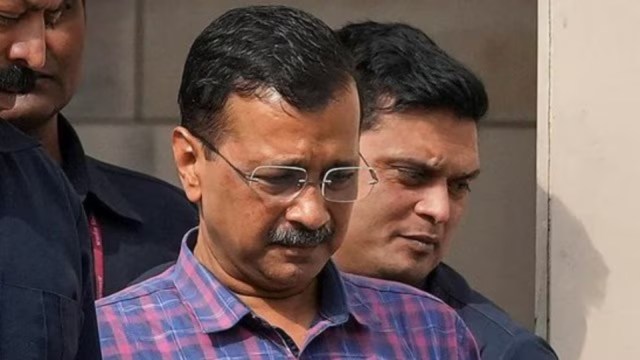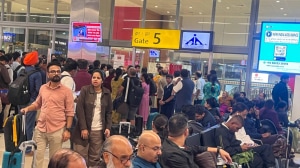25 adjournments in 10 months: Why is the Delhi excise policy case stuck?
25 adjournments in 10 months: Why is the Delhi excise policy case stuck?
 Delhi excise policy case update: Close to 14 months have passed since former Delhi chief minister Arvind Kejriwal was arrested in relation to the case. (Express File Photo)
Delhi excise policy case update: Close to 14 months have passed since former Delhi chief minister Arvind Kejriwal was arrested in relation to the case. (Express File Photo)The trial into the corruption case linked to the alleged Delhi excise policy scam has not moved forward much since the Central Bureau of Investigation (CBI) completed its probe.
There have been 25 adjournments in the last 10 months, and the case is stuck at the stage of scrutiny of documents. Close to 14 months have passed since former Delhi chief minister Arvind Kejriwal was arrested in relation to the case.
On Friday, D P Singh, Special Public Prosecutor (SPP) who represented CBI, told Special Judge Dig Vinay Singh of Rouse Avenue Court: “Enough is enough, my lord… the accused are trying to delay the trial.”
The SPP also argued that the CBI had provided all the ‘relied upon’ and ‘unrelied upon’ documents to the accused persons and that the latter were stalling the trial by moving applications. He urged the court to start arguments on the charge and stated that the accused persons can meanwhile inspect the documents.
Investigating agencies generally do not rely on all the documents that they have in their possession. Documents are bifurcated into two categories – ‘relied upon’ and ‘unrelied upon’. While the former is useful to the prosecution during investigation, the latter may be helpful to the accused for defending themselves.
Arguments on the charge are yet to begin in the case, and it is only after they have been concluded that the trial will begin.
An application was moved by various accused persons asking the agency to provide a complete list of ‘unrelied upon’ documents.
Special Judge Dig Vinay Singh said on Friday that he will decide on the issue of supplying a complete list of ‘unrelied upon’ documents to the accused by May 22.
A year ago, Special Judge Kaveri Baweja had blamed the accused for causing a delay in the trial by filing “frivolous applications”. The order of the court had stated that 135 applications had been moved by 31 accused in the case. These applications were moved to get legible copies of the documents.
The Enforcement Directorate’s money laundering case linked to the excise policy ‘scam’, on the other hand, has been adjourned 20 times since the agency completed its investigation.
The then Special Judge Kaveri Baweja had earlier directed the Central probe agencies to let the accused persons inspect the documents in this case.
Advocate Adit S Pujari, who represented accused Amandeep Singh Dhall, argued before the court on Friday that the CBI was “suppressing” a document which his client needed if he were to be discharged. Other lawyers also argued that there were documents with the agency that could prove their client’s innocence.
“The CBI’s non-compliance is causing delays. There is a deliberate concealing on their part. In two to three hours, I can’t inspect stuff every day. I have to go to the malkhana [storehouse] to look at documents… time and again, lists are being changed. Is there any tampering with the documents?” argued the advocate representing accused Vinod Chauhan on Friday.
Two cases have been registered in relation to the Delhi excise policy: one by the CBI, and the other, on alleged money laundering, by the ED. Almost all top Aam Aadmi Party (AAP) leaders in the capital were once behind bars in relation to the excise policy scam case, including Kejriwal, AAP Rajya Sabha MP Sanjay Singh, and former Delhi deputy CM Manish Sisodia.
The case arose out of a report submitted by Delhi Chief Secretary Naresh Kumar to Lieutenant Governor (LG) Vinai Kumar Saxena in July 2022, pointing to alleged procedural lapses in the formulation of the Delhi Excise Policy 2021-22. The report pointed out that “arbitrary and unilateral decisions” taken by Sisodia in his capacity as excise minister had resulted in “financial losses to the exchequer” estimated at more than Rs 580 crore.
The policy came into force in November 2021, but was scrapped in July 2022.







